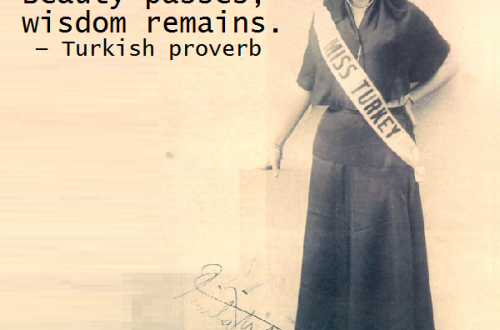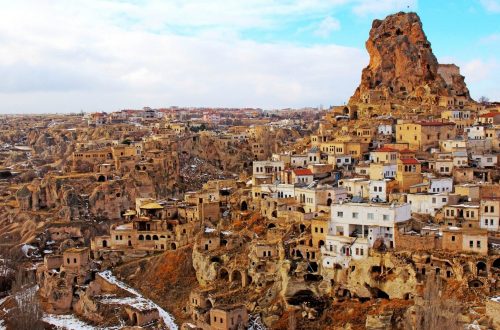
Can, Sinem and Leyla; do you know the meanings of Turkish names?
I am sure that by now each of you knows at least one Turkish name …. I try to guess? Can? Sinem? Leyla? But do you know the meaning of Turkish names?
Some Turkish names have struck the romantic hearts of Italians this summer. The phenomenon of our Turkish TV series has helped people discover our beautiful names.
The name Can means life or soul. It is pronounced “Gian” and is very common in Turkey. In fact, we often address loved ones by saying “canım”, which literally means my life, but in everyday context, it is understood as my dear. Sanem on the other hand means idol or beautiful woman. Finally, Leyla is related to the night… suggestive, right? The different meanings of our names make them poetic and melodious.
Often, Turkish names correspond to a virtue, a quality, or an element linked to the aquatic,, climatic or plant world.
Variety of Turkish names
The variety of Turkish names is truly vast. If the inspiration is floral, you may often hear Gül (rose), Ҫiçek (flower), Defne (laurel), Gonca (bud) … on the other hand, one of my favourites is Nilüfer, which means Nymph, also the name of a famous Turkish singer. I invite you to listen to one of her best songs.
Gül also combines well with many other feminine names , like Gülnur, Gülsen, Gülay and Gülbahar (spring rose) but also for masculine names like Gülali, which stands for the rose of Ali.
Climatic, naturalistic and astral names include Güneş (sun), Yıldız (star), Bulut (cloud), Yağmur (rain), Nur (light), Damla (drop), Meltem (breeze), Pınar (spring) or Su (water).
Names inspired by qualities or virtues include Sevim (pleasant, pretty), Güler (smiling), Kibar (kind), Özgür (free)and Özlem (desire), which are among the most common.
In addition to being poetic, our names can also be exotic, with Persian, Arabic and Asian origins. Turkey is such a crossroads of cultures which, over the centuries has enabled such an interesting varietythis profusion of names.
Curiosities about Turkish names
The names are in turn flanked by equally suggestive Turkish surnames. The adoption of the Surname Law of 1934 was one of the great changes introduced by Mustafa Kemal, better known as Atatürk.
Atatürk (which means Father of the Turks) was the founder of the Turkish Republic and imposed the adoption of a surname to follow the model of neighbouring Europe.
There are many surnames with prestigious connotations, such as Öztürk (true Turkish), Demir (iron), Şahin (eagle), Yıldırım (lightning), Yazıcı (the one who writes), Karadağ (black mountain).
There are also numerous Turkish surnames composed with the suffix oğlu (son of), for example Kasaboğlu (son of the butcher), Ҫobanoğlu (son of the shepherd), Aslanoğlu (son of the lion), Köroğlu (son of the blind man) and so on.
The names discovered on television
Do all the names heard and discovered on television come back to your mind? In addition to Can, Sanem and Leyla. There are poetic names like Demet, a very sweet name that simply means “bunch”, intended as a bouquet of flowers. Lale, for example, means tulip. Or Aylin, which means “moonlight” or Meryem, which is the Turkish version of Maria.
You may also have heard the name Emir which stands for “prince”, Kemal which means “perfection” or Emre, a famous figure in the current series this year, means friend, despite the character he plays.
Around me…
As you will have understood, poetry is not only on television. In Turkey we are surrounded by poetic names. I myself, around me, have relatives and friends who are called Songül (last rose), Kibar (gentle), Derya (infinite), Ekin (harvest), Serap (mirage), Ceren (young gazelle), Gizem (mystery) , Şenay (joyful moon), Gamze (dimple) or Sevda (love).
I hope I made you dream …




